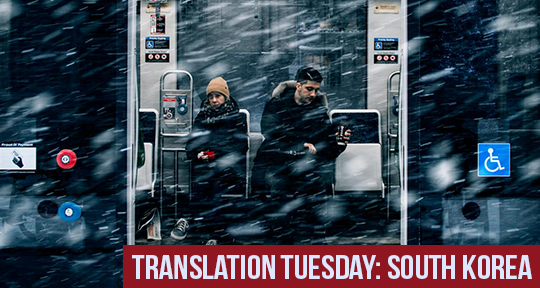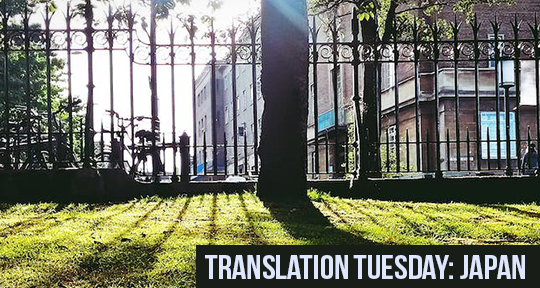This Translation Tuesday, we feature an intricate story told deftly by Guka Han, translated from the French by Catherine Leung. On a morning too cold to leave her bed, Han’s narrator scrolls through her feed. Among the ads and videos, a photo of “her” surprises her: a friendly fellow student from film school, and in a later crossing of paths, a strange albeit familiar face in the country she’s emigrated to. Memories begin to return—of her first summer in this new country, her anomie, her listlessness, and her two strange encounters with this girl. Deep unhappiness lurks in the narrator’s ambivalent, almost benumbed recollection—elusive and obscure, yet instantly familiar to those who know it.
I open my eyes. The day is about to begin, but last night’s dreams and the events of yesterday still surround me and hold me back from a fresh start. My head’s in a fog. The alarm didn’t go off. Curled up under the duvet, I reach out to grab my phone. The cold air from the bedroom immediately nips my arm. I look at the time on the screen and stretch, but don’t manage to shake off the sense of fatigue. I wonder what woke me. The chill in the bedroom feels even sharper than usual and I don’t feel ready yet to face the new day. I curl up again and make the most of the little heat still remaining in the bed.
I turn my phone back on. The bright screen dazzles me, but after a few moments, my eyes adapt. I scroll through the day’s news. An acquaintance is interested in the language of cats; another hates a politician; somebody is stuck at the airport in Moscow; a celebrity has succumbed to cancer; such and such a person is looking for a flat “650 euros max”; a child has choked on a Kinder toy; a girlfriend has eaten noodles with mushrooms; somebody else has felt moved by an extract from a book; and in the middle of all this news, a photo catches my attention. It’s her. She’s wearing a thin dress and is smiling as she stares at the lens or the person who took the photo. Her forehead is glowing in a summer light. It’s a good photo in my opinion—she’s beautiful in this dress, in this light.
With a flick of the thumb, I scroll through the news again. Stories, ads and photos follow one after another, and then suddenly, there she is once more. In this new picture she’s posing with a girl who I used to hang out with at university. I tap on the photo without thinking.
“…”
Three ellipsis points, nothing else. Sixteen people liked this photo, and twelve added a comment. I read one, then another, and suddenly realise she’s dead.


